24+ Sample Licensing Agreement
-
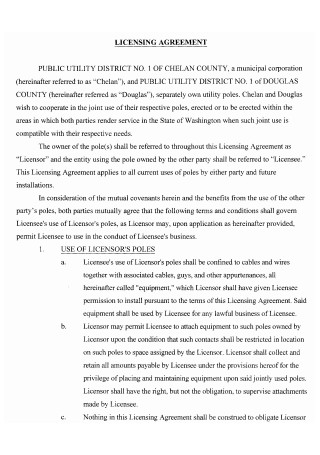
Licensing Agreement Template
download now -
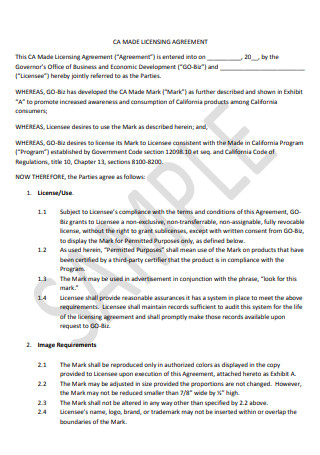
Sample Licensing Agreement
download now -
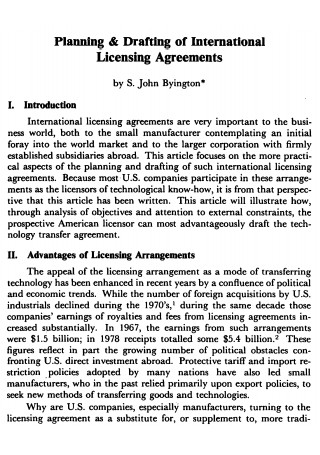
International Licensing Agreement
download now -
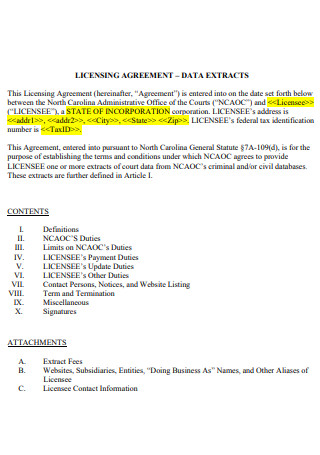
Licensing Agreement Format
download now -
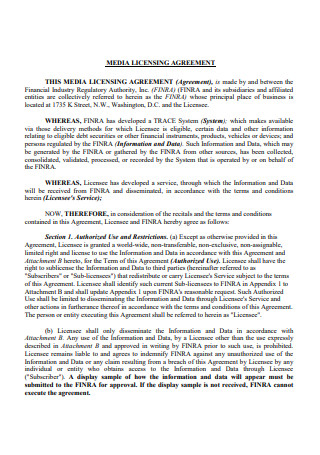
Media Licensing Agreement
download now -
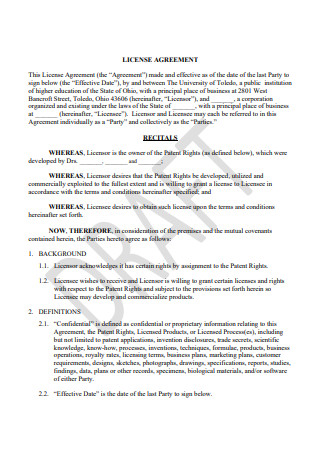
Draft License Agreement
download now -
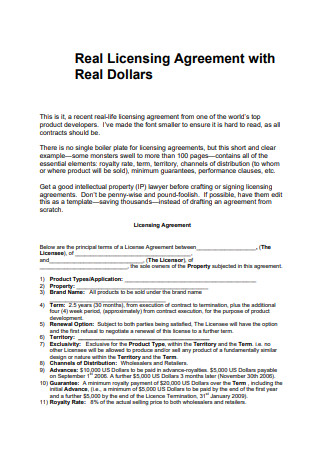
Simple Licensing Agreement
download now -
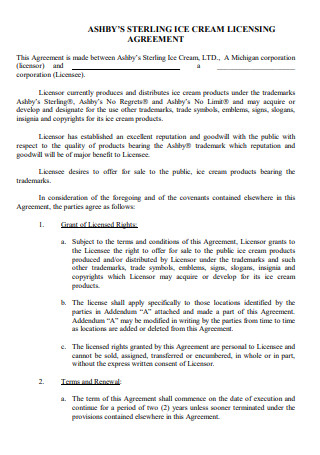
Basic Licensing Agreement
download now -
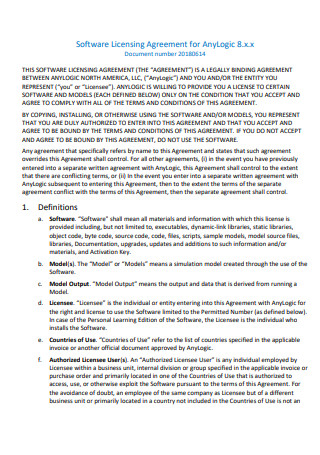
Software Licensing Agreement
download now -
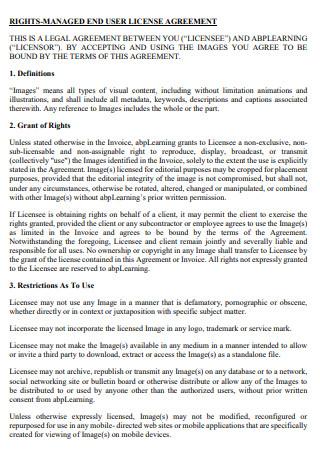
End User License Agreement
download now -
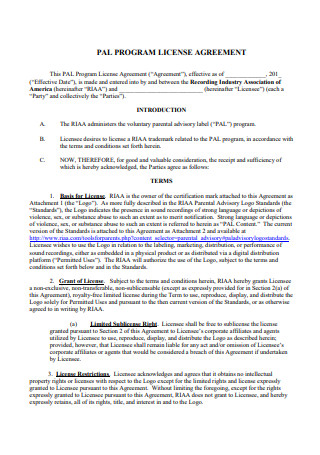
Program License Agreement
download now -
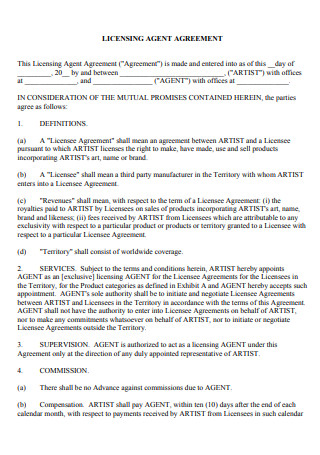
Licensing Agent Agreement
download now -
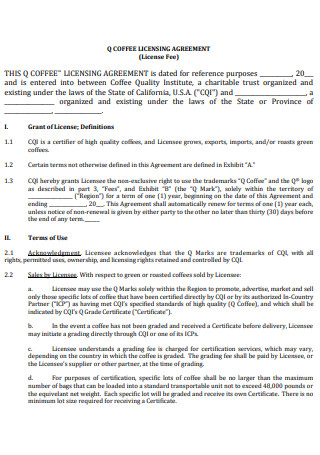
Coffee Licensing Agreement
download now -
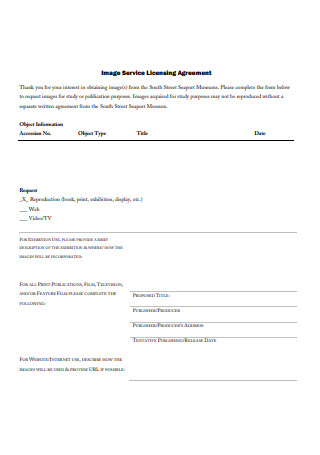
Image Service Licensing Agreement
download now -
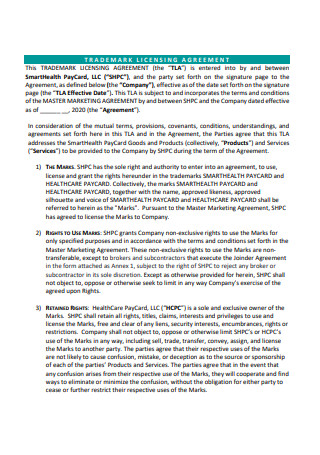
Trademark Licensing Agreement
download now -
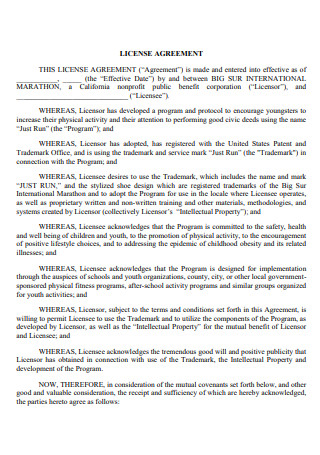
Formal License Agreement
download now -
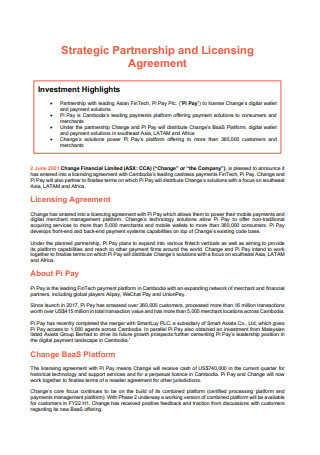
Strategic Partnership and Licensing Agreement
download now -
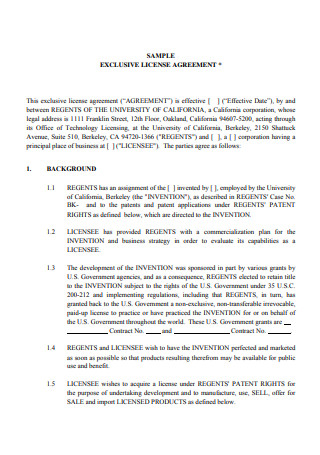
Exclusive License Agreement
download now -
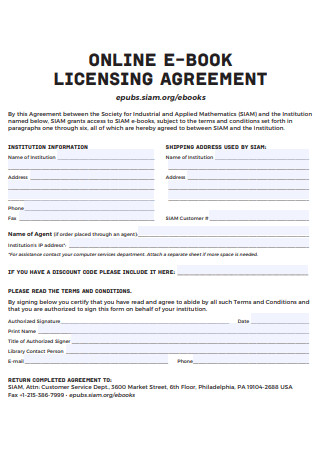
Online Licensing Agreement
download now -
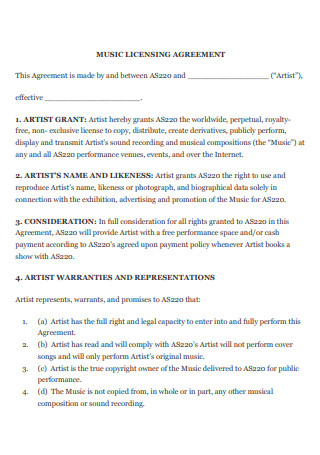
Music Licensing Agreement
download now -
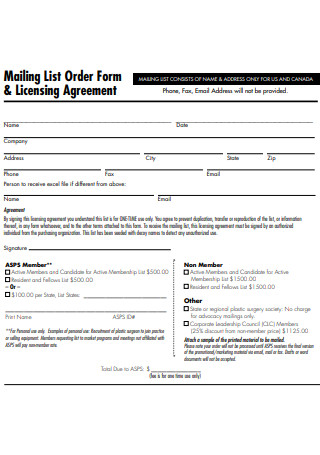
Mailing List Order Form and Licensing Agreement
download now -
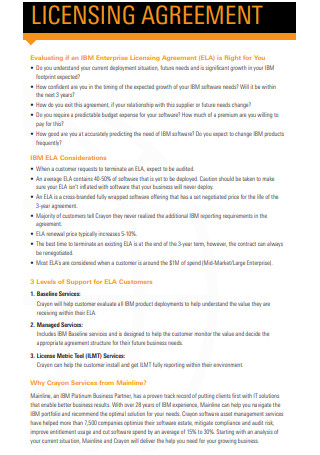
Printable Licensing Agreement
download now -
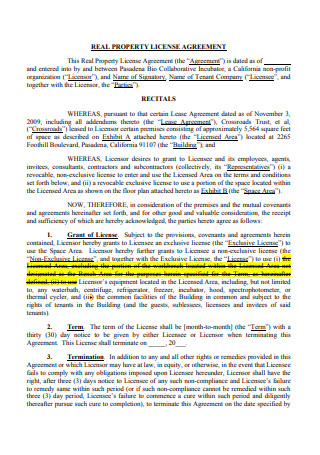
Property License Agreement
download now -
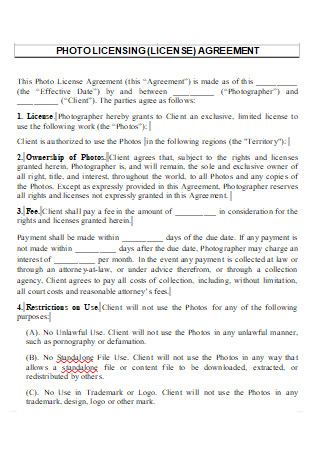
Photo Licensing Agreement
download now -
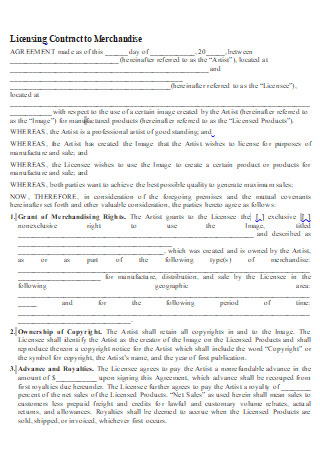
Merchandise Licensing Agreement
download now
Licensing happens when a company permits another to manufacture its product for a guaranteed amount. In such a relationship, the two companies must create and agree in terms of licensing beneficial to both parties. A licensing agreement presents itself as a document for a clear understanding of what each party intends to do. Learn more about licensing agreement, along with its definition and other relating information from the article below.
What Is a Licensing Agreement?
A licensing agreement refers to a legal and written contract between two companies that states the property owner permits another company to utilize their brand, patent, trademarks, copyrights, and other intellectual properties in exchange for a fee or a percent of revenue. The agreement set between the two parties, namely the property owner (licensor) and the permitted party (licensee), holds details regarding its type, terms of use, and compensation. Licensing agreements also help alleviate any form of disputes relating to sales, quality control, and royalties. It also allows the licensor to control their property, expand, and enter markets without releasing some money. It is also safe to point out that making these deals may cause problems if not done correctly. Establishing relationships with the wrong company may tarnish the property owner’s reputation.
According to an article published in globalnewswire.com dated August 2020, the Walt Disney Company ranks at number one, reporting 54.7 billion US dollars in annual retail sales of their licensed consumer products for 2019.
Components of a Licensing Agreement
Upon a business owner’s decision to enter into a licensing agreement, be prepared to negotiate and discuss various terms and conditions relating to the use of the intellectual property. It also depends on the use of the license, whether it is for merchandising, manufacturing, and other terms. In such cases, the composition of a well-written licensing agreement is as follows:
Helpful Tips in Creating a Licensing Agreement
Creating a license agreement requires a thorough process and requires an understanding between two parties. The licensor and licensee must come into accord with the terms and conditions of each other to lessen and prevent misunderstanding and disputes. Here are tips to consider in creating and engaging in a licensing agreement:
Tip 1: Establish Ownership and Be Ready For Potential Disputes
In terms of intellectual property, make sure the ownership of the product or services is clear. Ensure that no other company is using your asset and that it is properly registered. It is better to do meticulous research before engaging in a licensing agreement. It also helps to prepare for potential disputes in terms of ownership. For example, another company or individual claims copyright over a property you have the right to license. It is essential to know the course of action if and when the situation arises, especially if it involves plagiarized work under the license.
Tip 2: Emphasize Monitoring Processes and Quality Assurance
Before mass producing any product, it is necessary to have an initial test sample of the product that must be approved. Observance of periodic quality checks is a must during the license term to ensure it is up to the property owner’s standards. There must also be an emphasis on product sales monitoring. It is also essential to determine which of the parties decides on the product price and if discounts and sales are available.
Tip 3: Be Mindful Of Definitions and Government Regulations
If you are ever left unsure of any part of the contract, it is beneficial to ask. Ensure that you understood each statement in the agreement to know what you are consenting to. It is also essential that the process and product descriptions are complete and coherent to avoid any misunderstandings.
Tip 4: Learn About the Other Party Through Due Diligence
Before getting into any licensing agreement, it is essential to learn about the other party. Know their views and opinions before engaging in an arrangement. It is also safe to check the company’s operations. It is where due diligence comes into play. Due diligence is the process and effort of a company to gather and analyze information before conducting or engaging in a transaction. It involves checking business credits and business resumes, asking for financial statements, and visiting the company office and manufacturing facilities. It is better to be safe than sorry.
Tip 5: Discuss Royalties and Learn About Taxes
In terms of royalties, the licensor must ensure a thorough discussion with the licensee, being that payment is the center of all licensing agreements. Discuss how the licensee pays off the royalties when different situations arise. It is also advantageous to pay attention and learn about taxes relating to the royalties. When the licensee pays for the royalties, it is a business expense on taxes. Royalties are also considered a form of income to licensors and must reflect on the IRS Form 1099-MISC. It is also advantageous to consult a tax attorney or lawyer to learn about tax royalties.
Tip 6: Prepare for All Possible Outcomes
While working with an authorized attorney on the licensing agreement, it’s beneficial to create a simple list of possible situations or circumstances you may face in the future. For example, what if one of the parties goes bankrupt? What if either or both parties cannot fulfill their obligations? What happens if there is a case of a breach of contract? It may seem absurd, but asking yourself these questions help with preventing these problems and finding solutions in the long run.
FAQs
What is the purpose of a licensing agreement?
A licensing agreement ensures the licensee of legal permission to use or market another entity’s property. The creation of licensing agreements protects intellectual property, including patents, trademarks, and copyrighted materials (music, films, videos, art). Remember that the licensing agreement only gives the licensee the right to use the property within the parameters set by the licensor. It is essential to stress that the license agreement does not let the permitted party gain ownership of the licensor’s property.
What are the types of licensing agreements?
Licensing agreements based on intellectual property are as follows:
- Trade Secret Licenses – Trade secrets are unique, and they are not known to the government. These are under the protection only of secrecy. Trade secret licensing agreements usually come with a non-disclosure agreement (NDA) stating that the party receiving confidential information cannot share any vital details.
- Trademark Licenses – Trademark licenses are for commercial purposes, like brand names, logos, or slogans. The licensing agreement allows the licensee to use their intellectual property for trademarks and are commonly on commercial or consumer goods.
- Patent Licenses – Patents cover science and innovation, and owners choose to license their patents for the licensee to manufacture and distribute in a larger market. These are the most complex as it involves every process from obtaining to maintaining the patent.
- Copyright Licenses – Copyright involves art, including music, films, videos, and artworks. The most prominent copyrights focus on popular pop-culture characters. These agreements are usually found on commercial products and used for distributorship for movies or musicals.
What are royalties?
Royalties are the payments stemming out from licensing for the right to use someone else’s property. When an organization keeps the ownership of a property and gets royalties from the permitted party to use the licensor’s property, it is a form of licensing material. Royalties also increase the business’ income and protect the buyer from claims of improper usage of the property. Licensing a business’s intellectual property and getting royalties from the license is one way of developing the organization’s income. Royalties also appear in various industries and serve a similar purpose in all of these. The only way for a company to gain royalties is if they permit a business to use your property in exchange for income.
As a licensor, engaging in a licensing agreement is a big step for the brand and the business itself, and it is something that big companies do to promote themselves. As a licensee, it is an opportunity to increase your company’s profits while marketing into a big market. A licensing agreement is an arrangement to benefit both parties. At the same time, it protects the licensor and licensee when it comes to misunderstandings. The best way to ensure that the terms and conditions of both sides are fair, consult an impartial third party with sufficient knowledge about similar agreements. In the words of Francis Bacon, “A wise man will make more opportunities than he finds.” It means that it is in your hands to make things happen. Start to make your business known and engage in a term of license through a licensing agreement sample found above.
